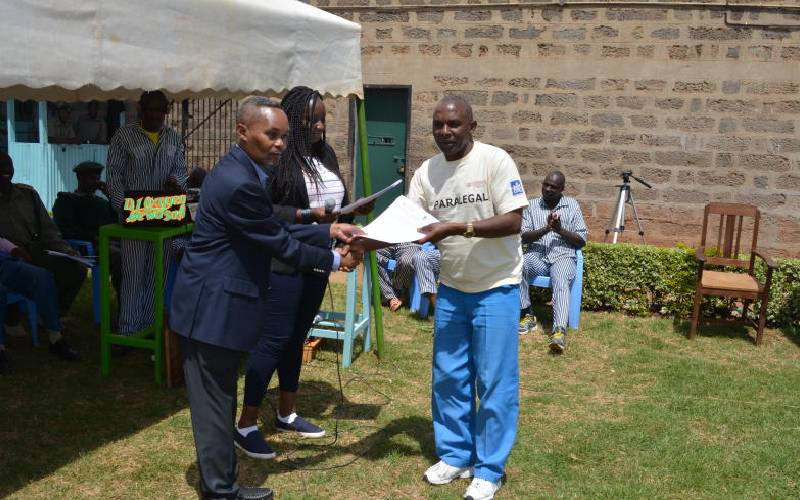×
The Standard e-Paper
Join Thousands Daily

Kituo cha Sheria Director Anthony Mulekyo hands a certificate to an inmate who completed paralegal training at the Nyeri Maximum Security Prison. [Allan Mungai, Standard]
Abdullahi Chute looks at ease in his striped prison uniform as he goes about his daily routine.